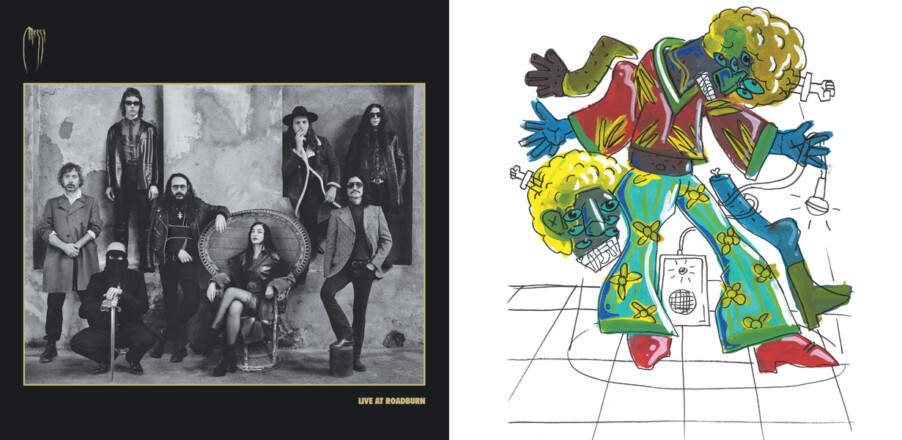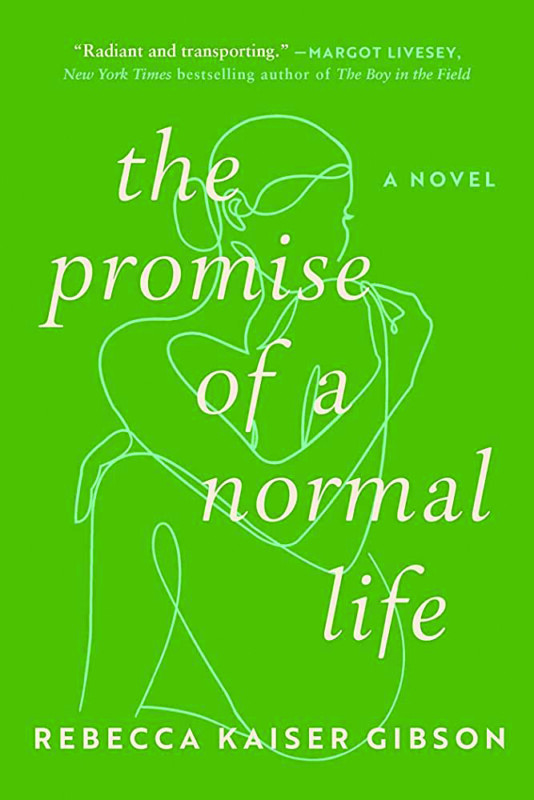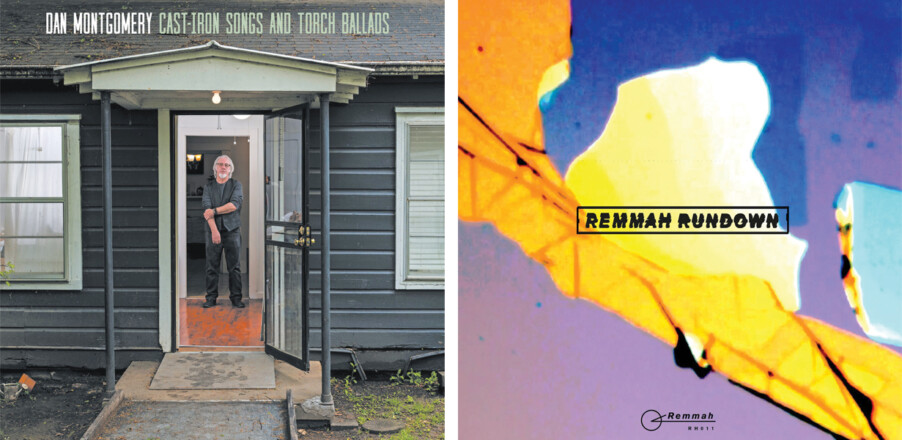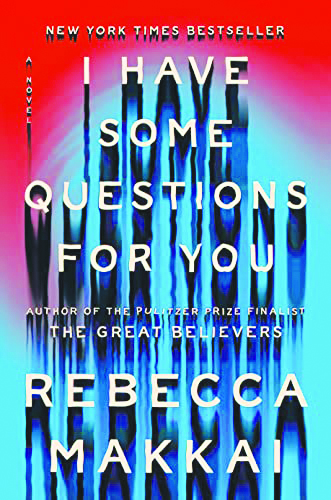Messa, Live At Roadburn (Svart Records)
Meanwhile, back in the doom-metal sphere, we have this new four-song LP from an Italian crew whose unlikeliest press quote came by way of Spin magazine: “If you’ve ever longed for an album that could reconcile Stevie Nicks at her witchiest with the sublime gloom of How the Gods Kill-era Danzig, this is the LP of your dreams.” Anyhow, these guys have a girl singer, which works when the (always slow) music is new-age-y or folky, but when it goes more in the direction of raw, blissed-out, Candlemass/Kyuss-tinted doom metal, it’s a bit of a reach, at least with her vocals, which, although strong overall (she sounds more like Florence Welch than Stevie Nicks, point of order), sound a little overwhelmed in the context. I’m sure she’d rather be in a Nightwish-type epic-metal band, but she’ll figure that out at some point. It’s a different kind of trip, I can assure you of that. A
Ric Wilson, Chromeo, & A-Trak, Clusterfunk (Free Disco Records)
Collaborative, highly accessible nine-song EP from a bunch of guys I remember covering (or ignoring) during my days covering velvet-rope club techno back in the mid-aughts. And that was probably to my detriment; I keep hearing about this or that going on with A-Trak and Wilson, but I don’t like Chromeo, as you may have noticed in these pages, and probably never will. Suffice to say, though, that this record is a pretty big deal, there are lots of semi-famous names on board this often catchy funk/hip-hop/spoken-word fricassee, such as King Louie (who tables some cool weirdo-rap on the ’90s-prostrating “Whisky In My Coffee”), Felicia Douglass of Dirty Projectors (in the Kool & The Gang-sounding “Everyone Moves To LA”), STIC.MAN of Dead Prez (on the record’s most fascinating dance-funk track, “Git Up Off My Neck”), Kiéla Adira and Mariame Kaba, whose spoken-word rant on the criminal justice system is pretty priceless. A
Playlist
• This Friday is April 21, which means we’re pretty much done with this stupid delayed-action winter, unless Mother Nature has plans to dump 20 feet of snow on us just to see if we’re paying attention. Ha ha, remember in January, there was no snow, and it was kind of warm, and everyone was like, “yeah, wow, talk about a lame winter” but suddenly in March (my least favorite month to begin with) good old “MoNat” (that’s the celebrity hip-hop name for Mother Nature) realized she’d lost all track of time playing Candy Crush, and she suddenly turned into Oprah Winfrey, yelling “Yikes, here you go, you get a driveway covered in a foot of frozen vanilla Slushy, and you do too” and whatnot, and all that massively heavy, dense-packed hatefulness sent 8,000 people to the hospital with chest pains and dislocated elbows? Well, folks, it’s almost over, it almost is, but first we must talk about a few albums that will be streeting this week. I’ve decided that we’ll start the week with Atum, a new album from comically overrated ’90s band The Smashing Pumpkins, because that’s what’s crackalackin’, home skillets, look at the ’90s rebirth that’s happening all around us, it’s all that and a bag of chips, I tell you! Can you even believe it, a new Pumpkins platter, and the band is still fronted by that Uncle Fester dude. I keep seeing all kinds of tweets and stuff saying, “Man, I loved the Pumpkins back in the shizniz, they were so fly, booyah,” and no one gets into an argument with them because they feel so sad for them. Anyway, I’ll bet this music will be absolutely awful if it’s anything like old Pumpkins, so I suppose I should trudge off to the YouTube box and see what the new single, “Beguiled,” is about. OK, here’s the video, and the tune is pretty much like Megadeth-metal at first, and ha ha, look at Billy Uncle Fester, all dressed up like the crazy dream-villain from that Jennifer Lopez movie The Cell, but it’s 100 times worse than ever before, like he’s really trying to channel that Cell dude. You shouldn’t let your kids watch this video. Huh, now there are ballerinas doing Swan Lake stuff, in Uncle Billy’s creepy Cell world. The song is OK if you like mid-tempo ’90s metal. Hm, now a bunch of people are doing fancy modern dances and stuff. One of the guys looks like Jim Carrey’s alter ego from The Mask. The ’90s are coming back, folks, there is no escape. Pray for us all.
• No way, a new album from The Mars Volta, with their most transgressive title yet, Que Dios Te Maldiga Mi Corazon, which translates to “May God curse you my heart.” Lol whatever, I’ve made fun of — um, I mean, reviewed some of their previous albums, like, their music has always struck me as freeze-dried low-grade prog-rock that’s missing its flavor packet, but let’s not go there, I’ll go have a listen to the title track and be normal. Wow, it sounds like Latin-radio stuff, which is a lot better than anything these guys have ever done. Maybe there’s hope, fam.
• Frenetic and spazzy flamenco guitar duo Rodrigo y Gabriela are releasing their new album, In Between Thoughts A New World, this week. Hopefully it won’t be a bunch of metal covers again, please oh please oh please. OK, the single, “Descending To Nowhere” is normal, but then a bunch of spiffy Spyro Gyra layers appear and it starts to sound like polite Weather Channel jazz. Kinda dumb but it’s OK.
• Lastly, it’s ’90s-radio-poppers Everything But The Girl, with their newest full-length, Fuse. The rope-in track is “Nothing Left To Lose,” a trippy, percussive, trance-pop dealie that sounds like Roxy Music reborn as afterparty patter. It’s perfectly fine.
If you’re in a local band, now’s a great time to let me know about your EP, your single, whatever’s on your mind. Let me know how you’re holding yourself together without being able to play shows or jam with your homies. Send a recipe for keema matar. Message me on Twitter (@esaeger) or Facebook (eric.saeger.9).










